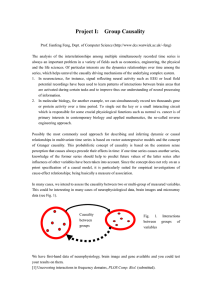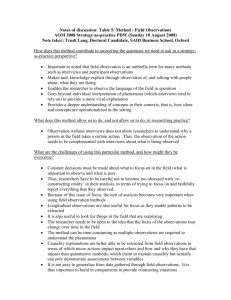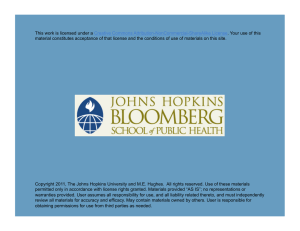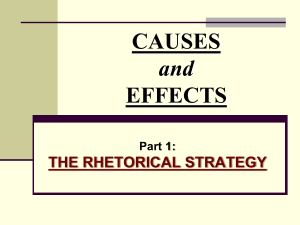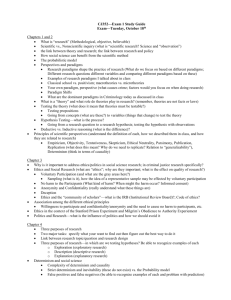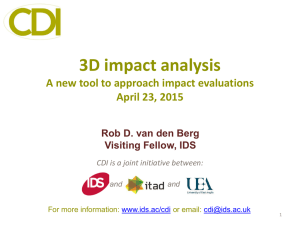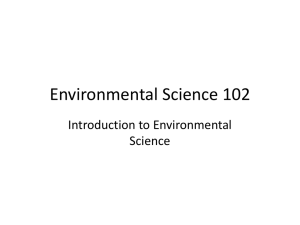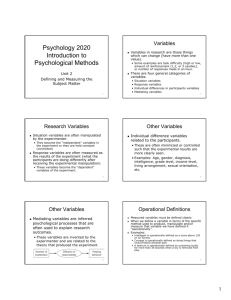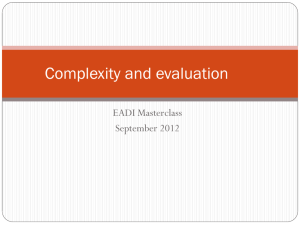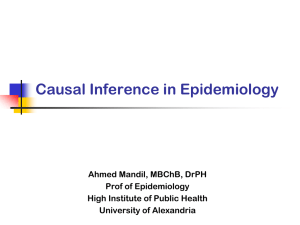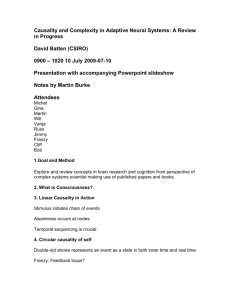relations_among_files/Causality Amanda Adams
advertisement
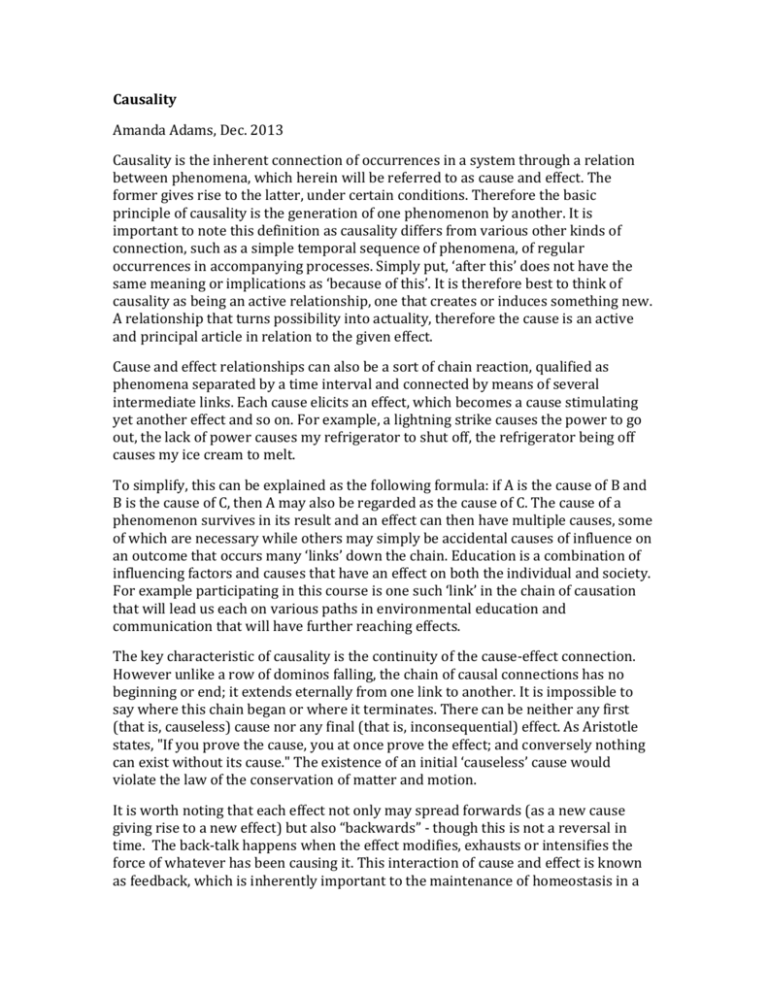
Causality Amanda Adams, Dec. 2013 Causality is the inherent connection of occurrences in a system through a relation between phenomena, which herein will be referred to as cause and effect. The former gives rise to the latter, under certain conditions. Therefore the basic principle of causality is the generation of one phenomenon by another. It is important to note this definition as causality differs from various other kinds of connection, such as a simple temporal sequence of phenomena, of regular occurrences in accompanying processes. Simply put, ‘after this’ does not have the same meaning or implications as ‘because of this’. It is therefore best to think of causality as being an active relationship, one that creates or induces something new. A relationship that turns possibility into actuality, therefore the cause is an active and principal article in relation to the given effect. Cause and effect relationships can also be a sort of chain reaction, qualified as phenomena separated by a time interval and connected by means of several intermediate links. Each cause elicits an effect, which becomes a cause stimulating yet another effect and so on. For example, a lightning strike causes the power to go out, the lack of power causes my refrigerator to shut off, the refrigerator being off causes my ice cream to melt. To simplify, this can be explained as the following formula: if A is the cause of B and B is the cause of C, then A may also be regarded as the cause of C. The cause of a phenomenon survives in its result and an effect can then have multiple causes, some of which are necessary while others may simply be accidental causes of influence on an outcome that occurs many ‘links’ down the chain. Education is a combination of influencing factors and causes that have an effect on both the individual and society. For example participating in this course is one such ‘link’ in the chain of causation that will lead us each on various paths in environmental education and communication that will have further reaching effects. The key characteristic of causality is the continuity of the cause-effect connection. However unlike a row of dominos falling, the chain of causal connections has no beginning or end; it extends eternally from one link to another. It is impossible to say where this chain began or where it terminates. There can be neither any first (that is, causeless) cause nor any final (that is, inconsequential) effect. As Aristotle states, "If you prove the cause, you at once prove the effect; and conversely nothing can exist without its cause." The existence of an initial ‘causeless’ cause would violate the law of the conservation of matter and motion. It is worth noting that each effect not only may spread forwards (as a new cause giving rise to a new effect) but also “backwards” - though this is not a reversal in time. The back-talk happens when the effect modifies, exhausts or intensifies the force of whatever has been causing it. This interaction of cause and effect is known as feedback, which is inherently important to the maintenance of homeostasis in a system. Examples of these feedback loops are everywhere, especially in selforganizing systems where perception, storing, processing and use of information take place, as for example, in the organism, in an ecosystem, in a computer, in language and communication, in education systems, and in society in general. The stability, control, and progress of a system are inconceivable without feedback. And the system reacts to the feedback with either balancing or reinforcing behaviours. Balancing feedback loops opposes the external forces and reinforcing loops enhance the direction opposed on the system by the external force. Bibliography Causality. Retrieved November 26 , 2013, from Information Philosopher Web site: http://www.informationphilosopher.com/freedom/causality.html Doyle, B. 2011. Free Will: The Scandal in Philosophy. I-Phi Press. pp. 144-150 Falcon, Andrea, "Aristotle on Causality", The Stanford Encyclopedia of Philosophy (Winter 2012 Edition), Edward N. Zalta (ed.), Retrieved November 26, 2013, URL : http://plato.stanford.edu/archives/win2012/entries/aristotlecausality/ Hoefer, Carl, "Causal Determinism", The Stanford Encyclopedia of Philosophy (Spring 2010 Edition), Edward N. Zalta (ed.), Retrieved November 27, 2013, URL: http://plato.stanford.edu/archives/spr2010/entries/determinismcausal/ Mackie, John L. The Cement of the Universe: A study in Causation. Clarendon Press, Oxford, England, 1988 Maturana, H.R. & B. Poerksen (2004). From Being to Doing: The Origins of the Biology of Cognition. Carl Auer International.
